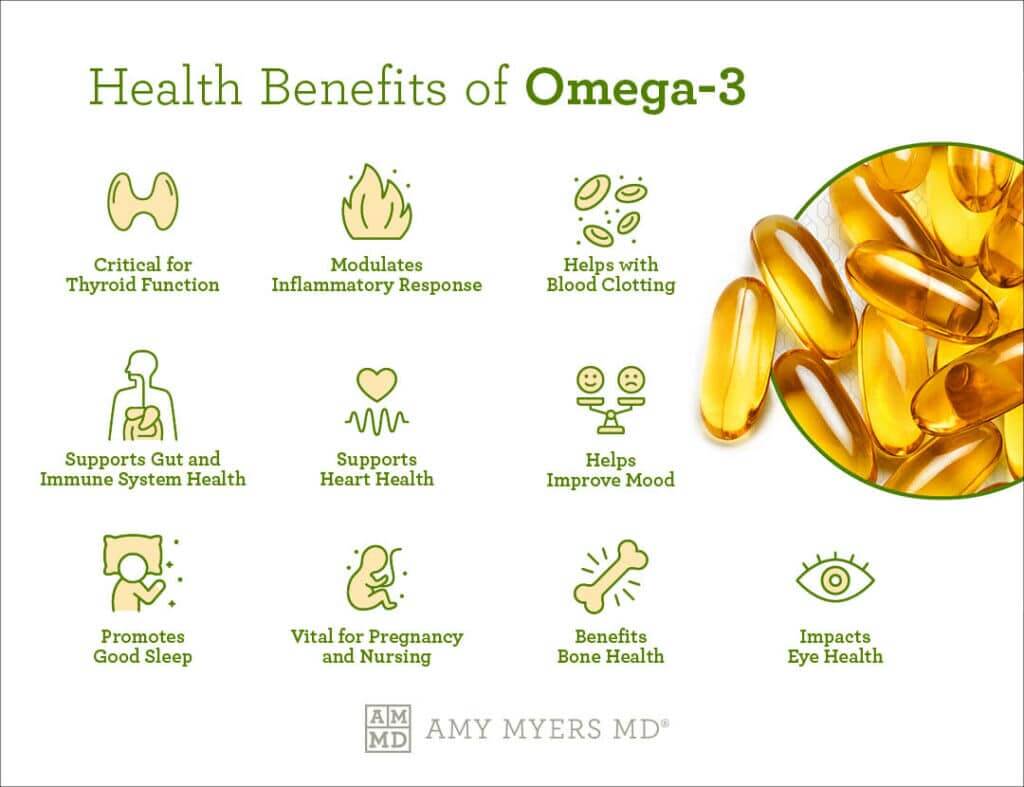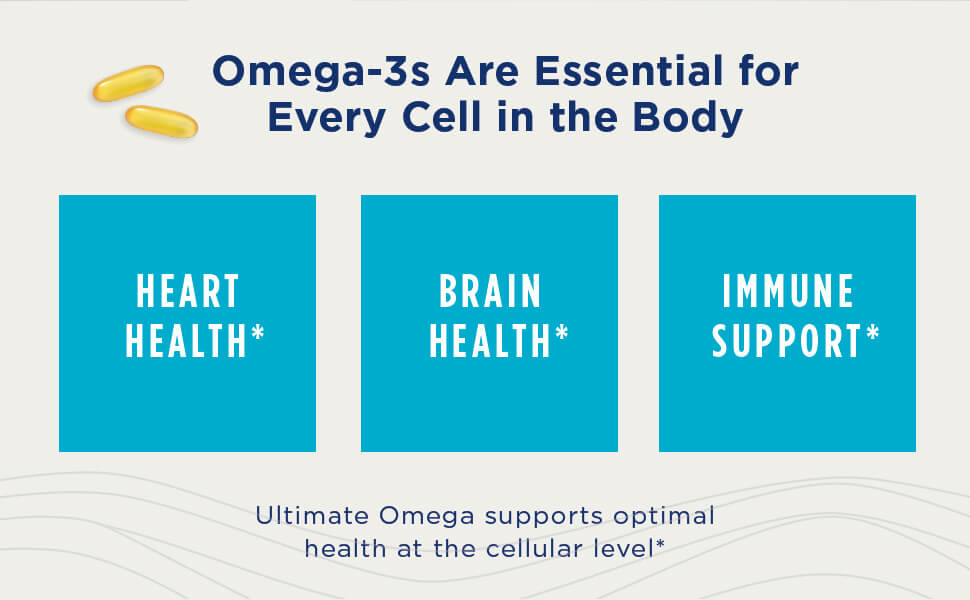 Welcome to our blog post on Omega 3 benefits! Whether you’re new to the concept or already familiar with this essential nutrient, we’ve got you covered. In this article, we will dive deep into the world of Omega 3 fatty acids and explore their incredible benefits for your overall health and well-being. So grab a cup of tea, sit back, and let’s get started!
Welcome to our blog post on Omega 3 benefits! Whether you’re new to the concept or already familiar with this essential nutrient, we’ve got you covered. In this article, we will dive deep into the world of Omega 3 fatty acids and explore their incredible benefits for your overall health and well-being. So grab a cup of tea, sit back, and let’s get started!
What Are Omega 3 Fatty Acids?
Omega 3 fatty acids are a type of polyunsaturated fats that are crucial for our body’s optimal functioning. They are considered essential because our bodies cannot produce them on their own, so we must obtain them through our diet or supplements. The three main types of Omega 3 fatty acids are EPA (eicosapentaenoic acid), DHA (docosahexaenoic acid), and ALA (alpha-linolenic acid).
Omega 3 Benefits

The Power of EPA and DHA
EPA and DHA are the superstar Omega 3 fatty acids that have captured the attention of scientists and health enthusiasts alike. These two fatty acids are primarily found in fatty fish, such as salmon, mackerel, and sardines. They have been extensively studied and proven to provide numerous health benefits.

1. Heart Health
One of the most well-known benefits of Omega 3 fatty acids, particularly EPA and DHA, is their positive impact on heart health. Numerous studies have shown that regular consumption of Omega 3s can lower the risk of heart disease by reducing blood pressure, triglyceride levels, and inflammation. They also help to prevent the formation of blood clots, keeping your heart pumping strong and steady.
2. Brain Health
Did you know that your brain is composed of nearly 60% fat, and Omega 3 fatty acids, especially DHA, play a vital role in its structure and function? Research suggests that a diet rich in Omega 3s can support cognitive function, improve memory, and reduce the risk of neurodegenerative diseases such as Alzheimer’s and dementia. They are truly brain food!
3. Mood Enhancement
Omega 3s have been linked to improving mood and emotional well-being. Studies have shown that individuals with higher levels of Omega 3 fatty acids tend to have a reduced risk of depression and anxiety. They can also be beneficial for individuals with bipolar disorder. The exact mechanisms behind these mental health benefits are still being explored, but it’s clear that Omega 3s play a crucial role in our brain’s chemistry.
4. Inflammatory Conditions
Inflammation is a major contributor to various chronic diseases, including arthritis, asthma, and inflammatory bowel disease. Omega 3 fatty acids possess powerful anti-inflammatory properties, which can help reduce inflammation in the body and alleviate symptoms associated with these conditions. Incorporating Omega 3s into your diet may provide much-needed relief and improve your overall quality of life.
ALA: The Plant-Based Omega 3
While EPA and DHA steal the spotlight, let’s not forget about ALA, the plant-based Omega 3 fatty acid. ALA is primarily found in plant sources such as flaxseeds, chia seeds, and walnuts. Although ALA is not as effective as EPA and DHA in providing the same health benefits, it still plays a crucial role in the body.
1. Conversion to EPA and DHA
Although ALA is not as readily usable by the body, it can be converted into EPA and DHA in small amounts. This conversion process is rather inefficient, with only a fraction of ALA being transformed into the more potent forms. Therefore, it’s important to ensure you’re also getting EPA and DHA from fish or fish oil supplements for maximum benefit.
2. Vegetarian and Vegan Friendly
For individuals following a vegetarian or vegan lifestyle, ALA-rich foods can be a lifeline. These plant-based sources of Omega 3 fatty acids provide an alternative to fish and fish oil supplements, ensuring that you can still meet your nutritional needs without compromising your dietary choices.
3. Overall Health Maintenance
Even though ALA might not possess the same level of benefits as EPA and DHA, it still contributes to overall health maintenance. ALA supports cell membrane function, promotes healthy skin, and assists in regulating heart rhythm. So don’t dismiss the power of plant-based Omega 3s!
How to Incorporate Omega 3s Into Your Diet
Now that we’ve explored the incredible benefits of Omega 3 fatty acids, you may be wondering how to incorporate them into your diet. Here are some practical tips to help you boost your Omega 3 intake:
- Fatty Fish: Aim to consume fatty fish such as salmon, sardines, and mackerel at least twice a week. These fish are excellent sources of EPA and DHA.
- Fish Oil Supplements: If you’re not a fan of fish or have dietary restrictions, consider adding a high-quality fish oil supplement to your routine. Look for supplements that provide at least 500mg of combined EPA and DHA per serving.
- Flaxseeds and Chia Seeds: Sprinkle ground flaxseeds or chia seeds onto your morning cereal, yogurt, or smoothies. These seeds are rich in ALA and provide an easy plant-based Omega 3 boost.
- Walnuts: Snack on a handful of walnuts for a tasty and convenient way to increase your ALA intake.
- Omega 3 Enriched Foods: Keep an eye out for Omega 3 enriched products such as eggs, milk, and fortified cereal. These can be a convenient addition to your diet if you’re looking for alternative sources of Omega 3s.
Remember, variety is key! Incorporate a mix of food sources and consider supplementing when necessary to ensure you’re meeting your body’s Omega 3 needs.
Conclusion
Congratulations! You’ve reached the end of our comprehensive blog post on Omega 3 benefits. We’ve explored the power of EPA and DHA in promoting heart health, brain function, mood enhancement, and alleviating inflammatory conditions. We’ve also discussed the importance of ALA for plant-based eaters and its role in overall health maintenance. By incorporating Omega 3-rich foods into your diet or using high-quality supplements, you can unlock the numerous benefits these essential fatty acids have to offer.
So why wait? Start reaping the rewards of Omega 3s today and embark on a journey towards better health and well-being. Your heart, brain, and entire body will thank you for it!
Related Topics Health Benefits of Chia Seeds








